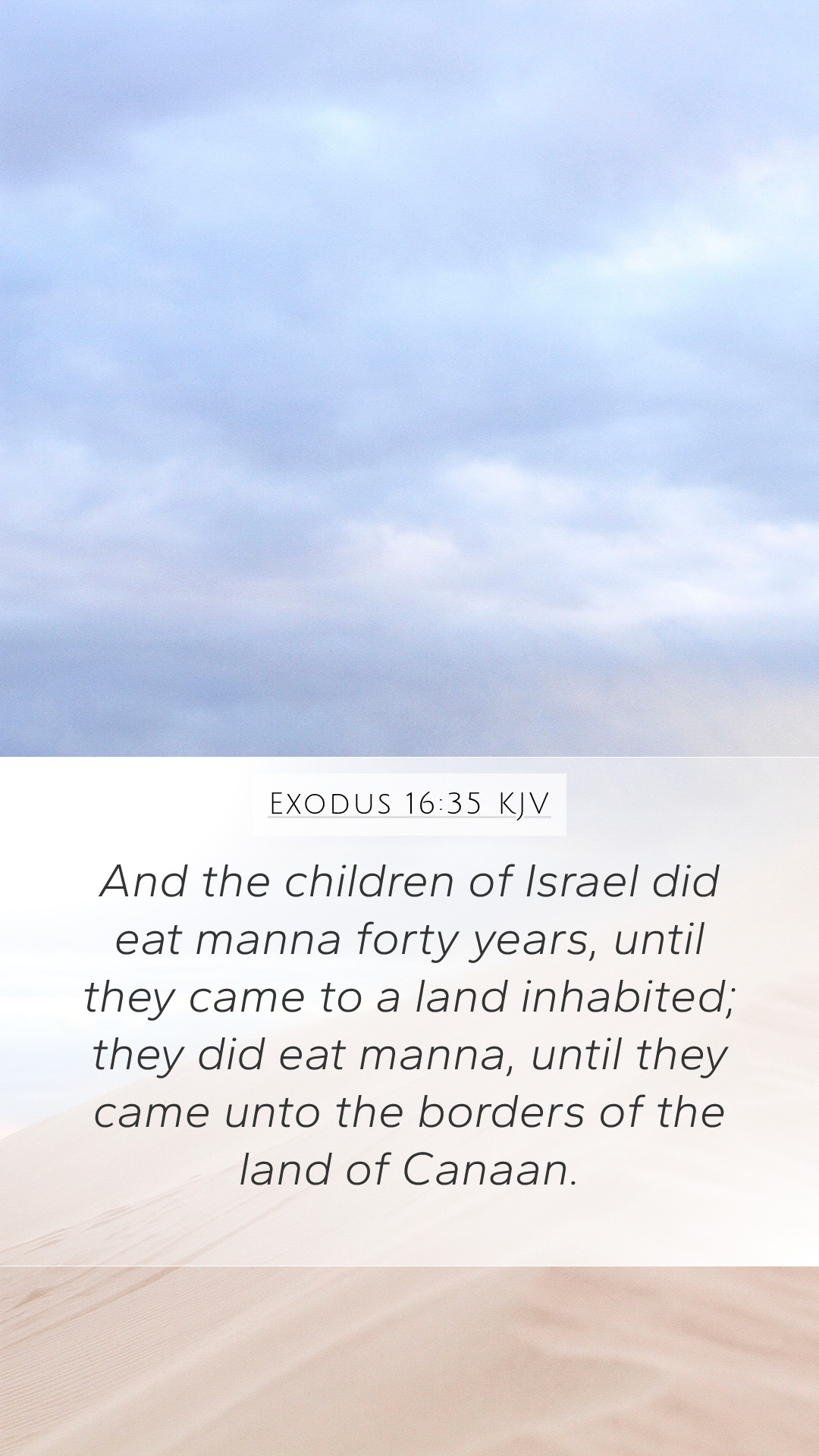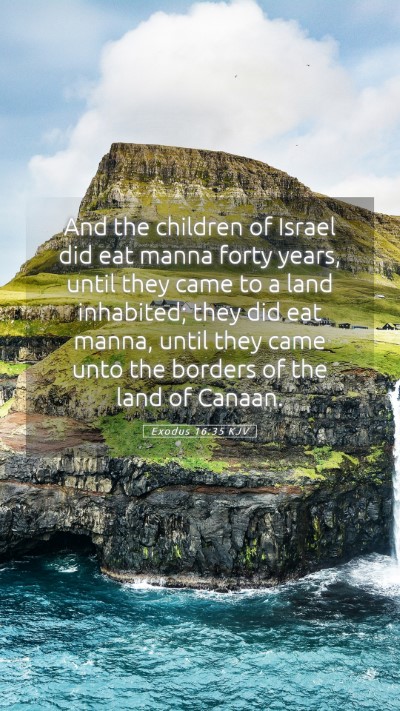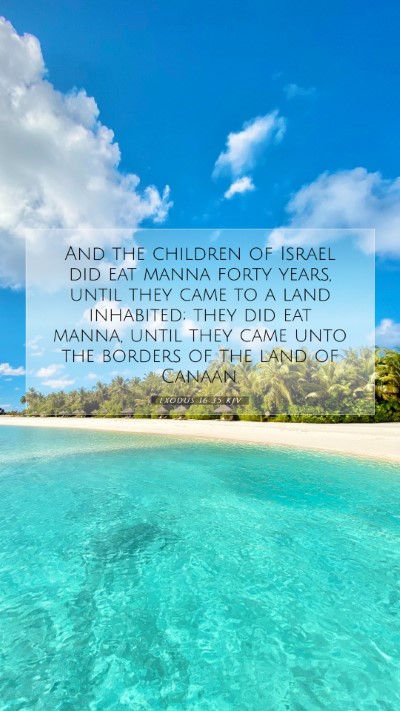Meaning and Commentary on Exodus 16:35
Exodus 16:35 states, "And the children of Israel did eat manna forty years, until they came to a land inhabited; they did eat manna, until they came unto the borders of the land of Canaan." This passage serves as a significant reflection on God's provision to the Israelites during their journey in the wilderness. The insights derived from several public domain commentaries provide deeper understanding and application of this verse.
Contextual Overview
The context of Exodus 16 captures a crucial moment in Israel's history where the Israelites, following their exodus from Egypt, find themselves wandering in the wilderness. They experience both physical hunger and spiritual testing. God responds by providing manna, a miraculous food substance that sustains them for forty years. This divine provision is fundamental in illustrating God's care and sustenance.
Commentary Insights
-
Matthew Henry's Commentary:
Henry emphasizes God's provision as a continuous reminder of His faithfulness. The forty years of sustainment not only highlight God's mercy but also symbolize testing and endurance for the Israelites. Henry notes that the manna served as a daily provision, demonstrating the necessity of relying on God for daily needs.
-
Albert Barnes' Commentary:
Barnes contributes to the understanding by explaining the symbolism of manna. He points out that its descent from heaven signifies divine intervention and provision. The forty-year period represents a significant phase of spiritual growth and transformation for Israel, as they learn reliance on God amidst adversity.
-
Adam Clarke's Commentary:
Clarke elaborates on the miraculous nature of manna and its implications for Israel. He explains the practice of gathering manna and its dependency on obedience to God's commands. Clarke notes that while manna was a physical sustenance, it also carried spiritual significance, foreshadowing the greater spiritual fulfillment found in Christ.
Key Themes and Applications
The primary themes evident in Exodus 16:35 include:
- Divine Provision: This verse underscores the consistency of God's provision in times of need, serving as a reminder to trust Him completely.
- Reliance on God: The necessity of the Israelites to gather manna daily teaches the importance of dependence on God, which can be applied in our daily prayers and trust.
- Endurance through Trials: The forty years of wandering symbolizes the need for perseverance in faith, especially during spiritual or physical hardships.
Cross References
For a more in-depth Bible study, consider these related passages:
- John 6:31-35: Jesus identifies Himself as the "bread of life," paralleling the provision of manna.
- Deuteronomy 8:3: Highlights the purpose of manna, teaching reliance on God's word more than bread.
- Psalms 78:24-25: Provides further context on God's provision of manna as spiritual food.
Conclusion
In summary, Exodus 16:35 encapsulates key lessons about God's unwavering support and sustenance during our wilderness experiences. Engaging with this verse through scriptural commentary enhances our Bible verse understanding and encourages deeper reflection on how God's provisions manifest in our lives today. For further exploration, this verse is an excellent topic for Bible study groups or online Bible study resources focused on the themes of God's faithfulness and provision.


